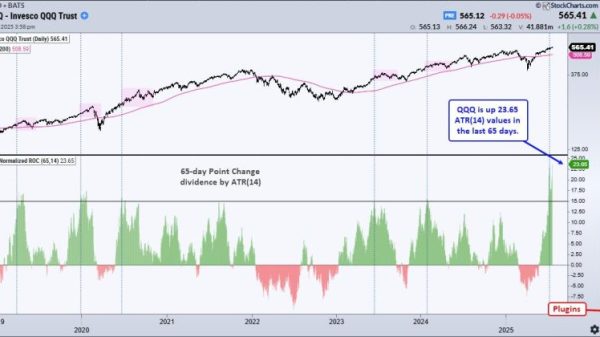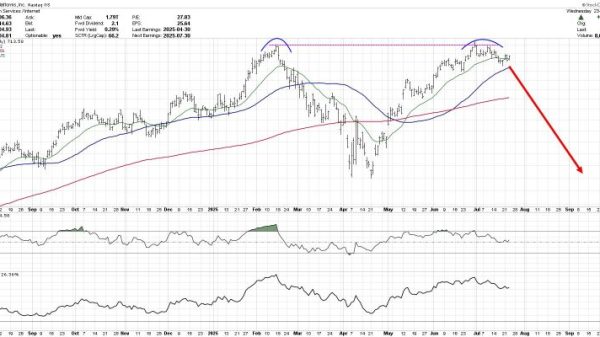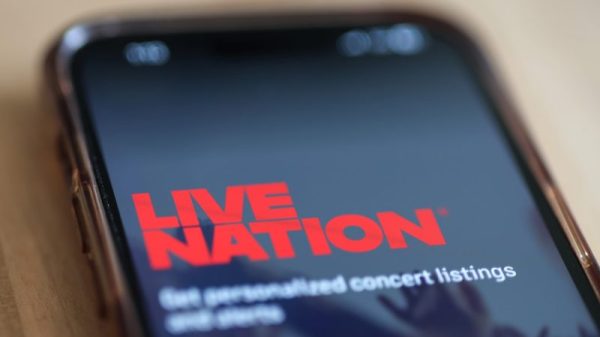It is very easy to read far more into primary election results than is warranted. There’s a natural inclination to do so, of course; people are curious about the general election and here are some actual votes from actual voters, so let’s figure out what they mean! You can appreciate the thought process of that first person, curious about the future, who noticed a weird pattern in the tea leaves at the bottom of their cup.
This year has been a big one for sending messages with primary votes to candidates of both parties, an effort that works better when there are fewer total voters engaged in voting as has been the case since New Hampshire, when it was obvious that former president Donald Trump and President Biden would be the nominees. But those relatively modest vote totals are also why we should be cautious about our conclusions.
Consider Georgia. On Tuesday, the state conducted its presidential primaries, helping Trump and Biden formally secure enough delegates to ensure their parties’ nominations. Trump won Georgia with 84 percent of the vote, among his biggest victories this year. The second-place finisher, former U.N. ambassador Nikki Haley, secured about 80,000 votes.
Still, some people argued, Haley pulling in 80,000 votes after she’d suspended her campaign might spell trouble for Trump in the state. After all, Biden won Georgia in 2020 by fewer than 12,000 votes. If those are 80,000 votes Trump lost, that’s bad news.
The issue, as The Washington Post has written before, is that there is no reason to think those votes would ever have gone to Trump. And we now have some robust evidence to that effect. Data on Tuesday’s electorate released by the state and gathered by the political data firm L2 (nearly but not entirely complete) indicates that about 19,000 people who voted in the 2024 Republican primary also voted in the 2020 Democratic one. Perhaps some were Republicans hoping to influence who the Democrats nominated four years ago. But many, it’s safe to assume, were Democrats hoping to send a message about Trump.
One indicator of that is among those 19,000 voters, about 56 percent voted before Election Day compared with less than half of Republican primary voters overall who did. This suggests that these are Democratic voters in an abstract sense; Democrats have been more likely to vote early and by mail in recent elections. But it also suggests that these voters may have been more likely to support Haley — if, that is, the number of voters showing up on Election Day was lower because she had already dropped out.
Another indicator: About 2 percent of Republican primary voters were Black, but 12 percent of 2020 Democratic primary voters who voted in the Republican primary this year were Black.
If most of those votes went to Haley, it accounts for a big chunk of her support. Statewide, she got about 78,000 votes, meaning that — if every 2020 Democratic primary voter backed her — it would constitute about a quarter of the votes she received.
Haley’s support was stronger in urban and suburban counties than rural or small metropolitan counties, just as Biden’s was in the state in 2020. More than 8,500 of the 2020 Democratic primary voters were in suburban counties. That’s about 23 percent of the total votes Haley won in those same places.
It’s useful to remember, though, that Trump and Biden each received more than 1 million votes in those same counties. Even the 37,500 votes Haley received in suburban counties is less than 2 percent of the votes cast in those places, to say nothing of those 8,500 crossover votes. In other words, this is not necessarily an indication that a significant portion of Trump’s base has defected.
We can assume some of the support Haley saw came from people she convinced to oppose Trump and who will oppose him in November, too. But exit polling and the L2 data suggest that much of her support came from people who weren’t likely to support Trump anyway.





























